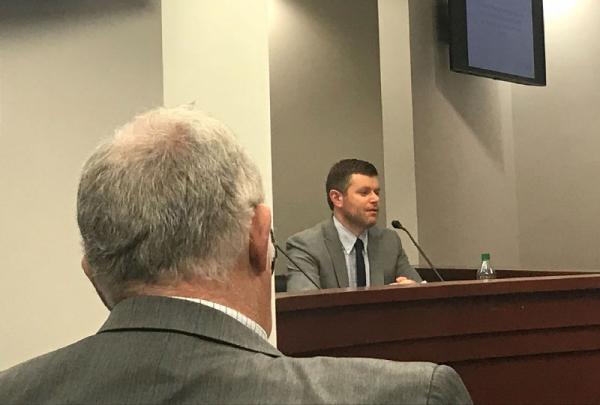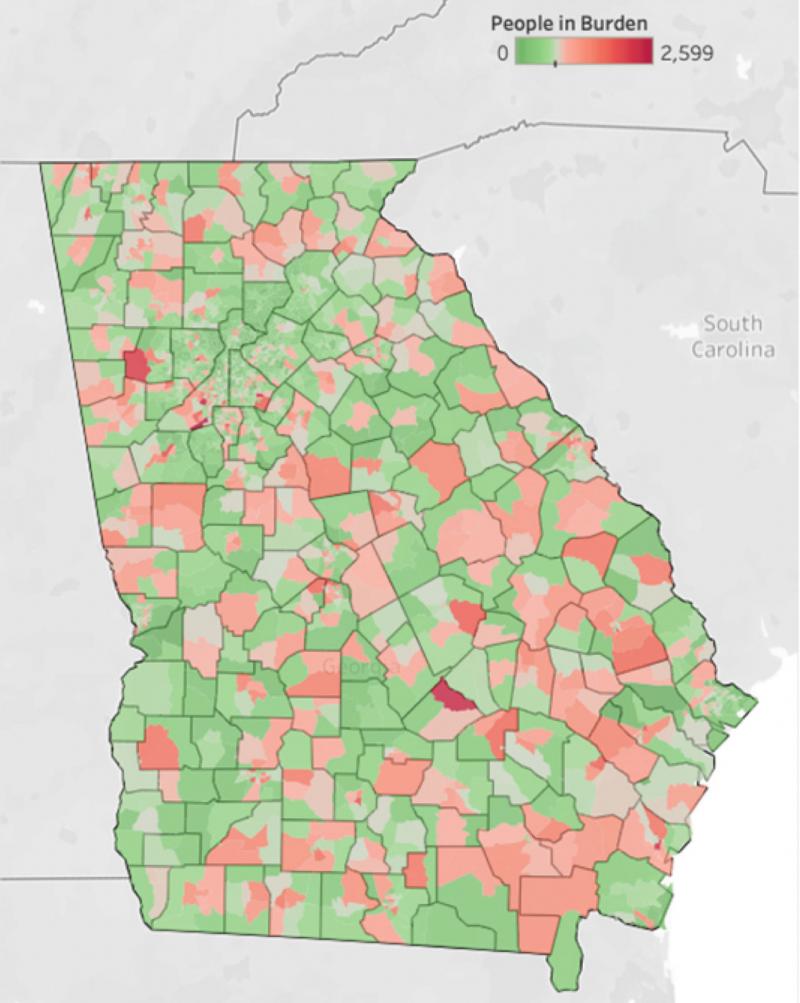Hearings highlight Georgia Power’s lack of enthusiasm for cutting carbon, increasing efficiency
Georgia Power continues to underinvest in proven clean energy solutions for reducing its customers’ power bills. That was the message brought forward by SELC and other clean energy advocates through two rounds of testimony this week before the Georgia Public Service Commission. The hearings are a chance for public input while the commission considers a draft of the utility’s latest long-range energy plan. Georgians who want to weigh in on the plan themselves can visit FairEnergyNow.org.
On behalf of Georgia Interfaith Power and Light and Partnership for Southern Equity, SELC attorneys at the hearing also raised questions about the disconnect between Georgia Power’s 20-year energy plan and the “low-to-no carbon by 2050” pledge announced last year by its parent company, Southern Company.
Looking ahead to major energy decisions in 2019, Georgians demand Fair Energy Now
While Georgia Power touted a 50 percent drop in carbon emissions since 2007, the utility’s own projections show carbon emissions would steadily rise over the planning horizon, erasing that progress. Georgia Power is the largest carbon emitter in the Southern Company system.
“Is it fair to say that Southern Company can’t meet its goals without significant carbon emission reduction efforts by Georgia Power?” asked Senior Attorney Kurt Ebersbach during cross examination.
After answering yes, Georgia Power witness and resource planning director Jeffrey Grubb admitted that “[c]arbon in and of itself is not a driver in the decisions we’ve made here.”
Grubb said the utility had no plans to “self-regulate” toward carbon reductions, and that, if natural gas prices go up, the company would increase coal generation. In that same scenario, however, Georgia Power had no plans to increase investments in energy savings measures. The utility’s energy efficiency plan would basically maintain the status quo, leaving Georgia Power behind its peers in capturing cost-effective energy savings.
After an initial round of hearings in April featuring Georgia Power witnesses, the proceeding picked up again last week, with Public Service Commission staff, solar industry members, and various clean energy advocacy groups making their case over three days of testimony.

On behalf of several groups, Matt Cox of the Greenlink Group, Inc. showed that Georgia Power’s proposed energy efficiency offerings leave hundreds of millions of dollars of potential customer savings on the table, resulting in higher bills and stunting economic growth statewide. Cox showed that the utility’s plans would do little to lessen the significant energy burden – the percent of household income spent on power bills – that persists across Georgia Power’s service territory.
Cox pointed out that in neighboring North Carolina, Duke Energy achieves 1.13 percent in annual energy savings without putting upward pressure on rates, while keeping monthly bills significantly lower than Georgia Power. Georgia Power’s annual energy savings is currently about 0.4 percent.
A number of groups are urging the Public Service Commission to establish a savings target, putting Georgia Power on the path toward an annual savings of at least 1 percent. The groups are also asking that the Commissioners push the utility to invest in well-designed low-income energy savings programs to address energy burden across its customer base.
“We hope the Commission will recognize that directing Georgia Power to invest more in energy savings programs would provide significant relief from high bills for working families and seniors on fixed income statewide,” said Nathaniel Smith, Chief Equity Officer for Partnership for Southern Equity.

Cox and other witnesses for solar advocates also weighed in on Georgia Power’s plans to add 950 MW of solar power for large-scale industrial customers but only 50 MW for smaller installations. Georgia Power would require those smaller projects to be competitively bid, all but ensuring more large-scale developments on cheap, rural land rather than the type of rooftop solar projects that an increasing number of commercial and residential customers desire.
To better ensure access to all customers interested in solar, the groups are urging the Commission to increase the solar proposal to at least 3,000 MWs while diversifying the types of offerings it includes. The groups are also encouraging better coordination with cities to help them maximize solar’s contribution to their clean energy goals.
“Georgia citizens like options–even when it comes to how we power our lives,” said Reverend Kate McGregor Mosley, Executive Director of Georgia Interfaith Power and Light. “At the same time, Georgia could be a regional leader for affordable solar power. It’s time for the Public Service Commissioners to lead on this and ensure that utility customers, both big and small, have access to quality, affordable solar and energy efficiency programs to keep costs down.”
Hearings will resume in June should Georgia Power decide to file rebuttal testimony. The commission will issue a final decision to approve, reject, or modify the utility’s energy plan in July.
Georgians can urge the Public Service Commission to take action, including ordering Georgia Power to invest more resources into energy savings programs proven to provide real bill relief. Visit FairEnergyNow.org and follow @FairEnergyNow on Facebook and Twitter to learn more.
Directing Georgia Power to invest more in energy savings programs would provide significant relief from high bills for working families and seniors on fixed income statewide.
Nathaniel Smith, Chief Equity Officer, Partnership for Southern Equity
